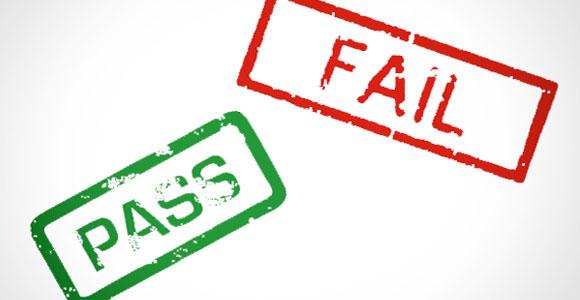The University has announced that all classes will be moved online for the remainder of the spring semester as a result of the coronavirus pandemic. They join many other universities nationwide in this decision as a preventative measure to keep students and faculty safe during the quarantine period. However, there is one way the University has not joined countless others in moving to online learning: using a pass/fail grading system.
As it stands currently, University students with 60 credits and a cumulative GPA of 2.5 or higher are able to take one elective course per semester on a pass/fail basis, and no more than four courses towards a degree can be taken pass/fail. Only a failing grade would be computed into a student’s GPA. However, the deadline to apply for pass/fail has passed, as a student must ask for it within the first two weeks of a typical semester.
University President Marvin Krislov took to Instagram the other day to address student concerns and check in with everyone. One student asked about moving to a pass/fail system in the comments section. The Pace University Instagram account replied, “Like many universities, we are exploring the possibility of moving to P/F grades. Announcements about grades are forthcoming.”
University student Isabella Crotti created a petition urging the University to switch to a pass/fail system. As of 10 p.m. on March 22, the petition has over 850 signatures. “A pass/fail option would address students’ concerns about the impact that remote learning can have on their academic success while students are forced to adjust to new learning environments,” Crotti wrote on the change.org petition. “This may seem like an extraordinary request, but we are living under extraordinary circumstances.”
University students are divided when it comes to the University switching to a pass/fail grading system, though most favor the change. The Pace Press polled 62 University students on Instagram, asking if they would prefer to move to a pass/fail system. 80 percent said they would prefer pass/fail, while 20 percent preferred to stay with the current A–F system.
In favor of the change is University freshman Jonathan Gerwick, who said, “People cannot thrive in a remote environment the same way they can on-campus in NYC.” As online learning cuts down on face-to-face communication with professors, it may be difficult for some students to absorb the material in the same way that they’re used to.
University senior Mikayla Drab is also in favor of changing to a pass/fail system. “I didn’t sign up for online school, and I can only handle five in-person classes,” Drab said. “When it switches to online, the structure is dramatically changed and the professors then think we can handle more work, but we can’t.”
“Not everyone has access to WiFi, people are in different time zones and some students will need to have more active roles in their home life,” said University student Clea Matt.
Catherine Harvey, a junior at the University, would also prefer that her professors switch to a pass/fail grading system. “I definitely think pass/fail would be a better option,” Harvey said. “Not so much just because it’s moved online, but because in general it’s very difficult to focus right now and it’s hard to put your best work out.”
However, some students are hoping that the University continues to assess students with a letter grade-based system. Students who are doing well this semester could use the boost in their GPA, something that a pass/fail system won’t contribute to.
University student Maria Andrade said, “As much as a pass/fail would help a lot of struggling students with courses…it won’t do much for students who need and want a grade boost. A lot of us were hoping to use this semester to receive straight As and increase our GPAs.” Andrade continued, “Perhaps a hybrid system will be ideal!” Andrade is referring to the way many schools have given students the option to take all classes pass/fail or continue with the letter grade-based system.
According to the Chronicle of Higher Education, schools such as MIT and Smith College have changed their grading mechanism to a mandatory pass/fail system as a way to counteract the anxiety-inducing negative effects of the coronavirus. Allison Stranger, a visiting professor of government at Harvard University and regular professor at Middlebury College, said, “Like my colleagues around the world, I am trying, in the midst of the coronavirus pandemic, to remake a course meant to be taught in real time, face to face, into a rewarding distance-learning experience…I am…less confident, however, that I can also grade students fairly when they have relocated around the globe.”
Stranger continued, “Students were forced to leave campus on short notice and are now scattered around the world. Some will be tuning in from distant time zones, others from situations where a stable internet connection is an unaffordable luxury good.” Harvard University and Middlebury College have extended their deadline for requesting a course be changed to pass/fail, so students have the option to switch their courses over.
Jenny Davidson, a professor of English at Columbia University, is also an advocate for a pass/fail grading system this semester. “The cumulative stress on the system is too great, and the inequities in the ways this will all play out for different students means that grading as we know it is already over for the semester,” Davidson wrote for the Washington Post. “It’s time to abandon our preconceived ideas about what needs to happen in a college class for a student to get credit for it.”
Davidson has three suggestions for grading during the coronavirus: “Strip down work expectations to the bare minimum; introduce mandatory pass-fail at the very least (opt-in pass-fail would just put undue pressure on our most driven students, many of whom already suffer from chronic anxiety and depression) and consider giving enrolled students A grades as a default; and work to wrap classes up as quickly as possible in most cases, so students can turn their full attention to other pressing matters.”
Other schools that have transitioned into a pass/fail system include Cornell, Columbia, Barnard, Northwestern University, Duke University, Grinnell College, Elon, University of Michigan Ann Arbor and Dearborn, University of Pennsylvania, Pitt, University of North Carolina and the CUNY schools, among others. Many of these universities are giving students the option to take classes pass/fail. Having the option to choose can give leniency to the students that need it while also allowing other students to improve their GPAs. Students at Clemson have started a petition asking the administration to switch to a pass/fail system, which has garnered over 3,000 signatures as of March 22 at 3 p.m.
As students are not accustomed to fully-online learning, this abrupt change can be the source of academic anxiety for many students. David M. Perry wrote for CNN, “When pass and fail are the only options, it allows the grader to focus on learning and growth, while students have more opportunities to try, mess up and improve without feeling that everything is lost or their GPA is ruined.”
Perry continued, “Everyone should shift to a pass/fail basis for a while, cutting each other as much slack as possible, while still acknowledging the work we’re all doing, staying connected and trying to remember what normal looks like.”
Regardless of the University’s upcoming decision on pass/fail, it’s important to focus on your health and safety first and foremost during self-isolation. Remember to wash your hands, cover your cough and stay inside your homes as much as possible.













